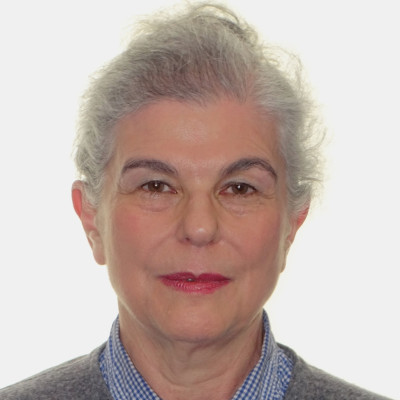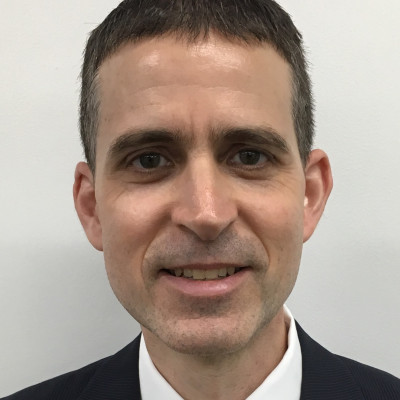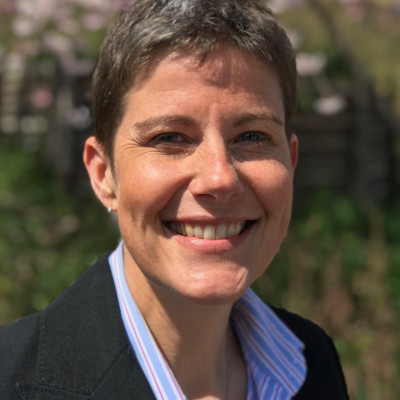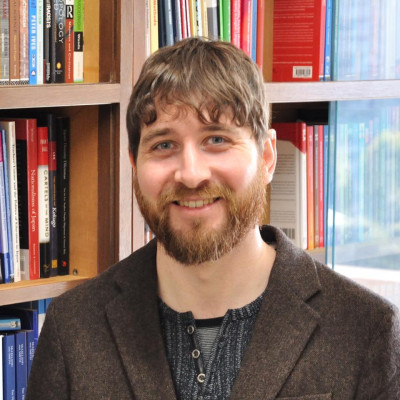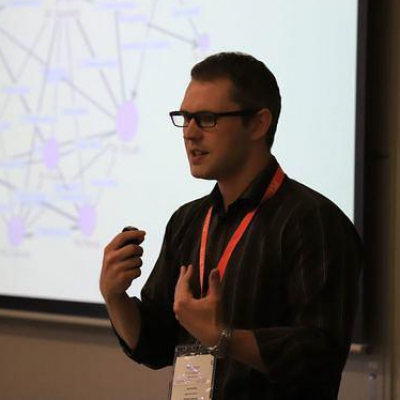Sessions / Location Name: Room 2
Location not set by organizers
Location:
Building: Conference Building < 富山大学 (University of Toyama, Gofuku Campus)
The Importance of Names #3899
“Identity” carries leverage in current social and educational contexts. It is included as a category under MEXT’s “four powers,” which educators are must refer to when drawing up syllabi and curriculum. Identity is both personal and social (Drew, 2023), and students gain strong senses of self when reflecting on it. “Who am I?” is a question felt keenly by first year university students.
This presentation looks at ways that students can safely explore their identity, beginning with rapport established through the learning of names (Cooper et. al, 2017). Year after year in end of semester feedback, students highlight this as a positive and useful undertaking. As semesters progress, students can become aware of differences they may have and can begin to self-advocate once they gain confidence. Both instructors and students can adapt tasks and approaches to a variety of learner and teaching needs. The initial step is acknowledgment of who students are—not only from the teacher, but from their classmates. This presentation will show how learning names affects the class for the whole of the semester, and how it helps facilitate a general openness among students to instructors, classwork and to each other.
Student Perceptions of a CLIL English Debate Course - Reflecting on Student Perceptions Compared to Teacher Concerns #3915
Research suggests that CLIL courses can have a positive impact on student motivation and interest in addition to improving linguistic capabilities. However, when a CLIL English Debate course was introduced as a required course at a university in Tokyo, discussions with other teachers raised questions about its appropriateness. The participation and motivation of students, the ability of lower proficiency students to succeed, and the appropriateness of materials were questioned. Surveys were designed to assess the students’ perceptions of the course to evaluate whether their experiences matched the concerns of the teachers. Across all proficiency bands the quantitative data showed that students reported generally positive expectations at the beginning of the course and positive opinions at the end of the semester. This suggests that they did not share the concerns initially expressed by their instructors. Qualitative data was varied but generally positive. At first students were nervous about their abilities but excited to improve their language and debate skill and at the end of the semester they reported learning to think and communicate logically as well as how to focus on being understood. Responses also provided insight into opportunities to improve the course design to better match their goals and expectations.
Passive Use in Japanese EFL Learners' English: A Corpus-based Study #3928
Japanese is considered a language that prefers to focus on situations rather than persons. Such event portrayal can affect L1 Japanese speakers’ acquisition of English, a language thought to focus more on agents. Passives are a way of backgrounding agents, and L1 expression of agency could be reflected in their L2 use. Similar interference during L2 acquisition has been observed when examining argument structure and passivisation across various languages. This corpus-based study examines written and spoken texts produced by L1 Japanese college students. It compares these to native English speakers’ language and examines indications of L1 interference in passive construction use. It finds differences suggesting that structures are carried over into the learnt language, such as the adversative passive, a feature absent in English, and relative clauses that give prominence to actions rather than actors. Indications of a different perspective during event portrayal were also found. Furthermore, the study suggests that the various functions of the passive in Japanese can contribute to a wider range of EFL learners’ use of some passive verbs, such as the potentially causative ‘made’. ‘Make’ causatives may be an area for further research on the perception of argument structure and agency during language acquisition.
Never Alone: How Friendship Can be Critical and Reflective #3921
The global pandemic required many instructors to adapt to online learning without the face-to-face support of colleagues. However, two friends teaching at universities in Japan turned this challenge into an opportunity by developing a critical friendship. They applied Costa and Kallick's (1993) definition of a critical friend as someone who asks thought-provoking questions, provides alternative perspectives, and offers constructive criticism as a friend. Hatton & Smith (1995) further emphasized that critical friendships involve collaborative discussions, encouraging open dialogue, questioning, and even confrontation to improve teaching practices. Kato and Mynard (2016) argued that reflecting with others is more challenging but offers valuable insights compared to self-reflection alone. They advocated intentional reflective dialogue, deliberately structured to foster deeper questions, as crucial for effective reflective learning. This presentation showcases the discoveries and transformations made by the presenters through their critical friendship. After a review of relevant literature, the presenters will explore how to establish a successful critical friendship. They will share data from their meetings and personal journals, demonstrating how their critical friendship has influenced the modification of their lessons to enhance the learning experience for their students. This presentation will benefit instructors seeking to engage in reflective practice by cultivating critical friendships.
Understanding the Autistic Language Learner #3911
The presenter draws on her own experience as an autistic learner and teacher of language. This presentation will explore how teachers' personal and professional development informs practice and helps us respond sensitively to all students including neurodiverse learners. Studies (Sasayama, 2021) estimate that at least 3% of the Japanese population is autistic. Some autistic students in your classes may not have been formally diagnosed, or be aware that they are on the spectrum. Each has a unique set of strengths and challenges. Not all will want to communicate their needs to their language teacher or receive special attention in class. To foster inclusivity in the classroom, teachers can call on both their professional skills and personal qualities to develop their awareness of students' needs and abilities and create practical strategies to support and engage all students. Freed from the emotional associations of their native language, foreign language learning can provide an opportunity for the autistic student to develop their language, communication and social skills in a new context. Understanding the autistic language learner can therefore contribute to the personal development of both teacher and student.
Speak Up: Two Techniques to Increase Student Engagement and Participation #3902
Devising ways to increase student participation is a frequent goal of English instructors. In Japan, where students at the tertiary level are often enrolled in mandatory English courses, motivating students to speak voluntarily in class can be a challenge. The presenter will describe and discuss two techniques he has used for increasing participation: the use of question cards for class presentations and a participation point system. Question cards can encourage students – especially those at lower skill levels – to pay more attention during classmates’ presentations and to engage with presenters following presentations. The participation point system motivates students to become active learners by providing a direct link between their active participation and the participation points they earn as part of their course grade. Using this system, students can earn points throughout the semester by raising their hand to volunteer an answer, by making a comment, or by answering a question when called upon to do so by the teacher. The presenter will describe details of how each technique is carried out, as well as possible variations and potential pitfalls to avoid.
Examining English as a lingua franca discussions in EMI classes #3894
In the past decade, Japan has seen notable growth in English as a Medium of Instruction (EMI) courses in its universities (Bradford, 2018). While some EMI classes contain only domestic L1 Japanese students, others also contain international students. Discussions that take place in the latter context can be considered as English as a lingua franca (ELF) interactions (see Murata, 2018). This paper reports on a mixed-methods investigation conducted at a public university in Japan into how students feel about, and how they perform in, ELF discussion tasks in EMI classes. Questionnaire responses were collected from both 1st year domestic (n=48) and international exchange students (n=8). In addition, video recordings were made of groups performing ELF discussion tasks. Each group contained both English as a native language (ENL) speakers and L1 Japanese students. The questionnaire data indicated that despite some anxieties, both domestic and international students had a desire to communicate using ELF. A conversation analysis-informed examination of the interaction data showed that ENL speakers often dominated the discussions both in terms of language produced and the control they assumed over the task proceedings. However, there was also evidence of accommodation strategies used by the ENL speakers to aid communication (as also reported by Carey, 2010). The presenter will invite discussion of these points and their implications for EMI classes in Japan.
Automated Transcription and Measures of Lexical Diversity in L2 Spoken Texts #3900
While there has been an increase in the use of transformer-based Automated Speech Recognition (ASR) models like OpenAI’s Whisper for transcribing L1 speech (e.g. Lin, 2023; Seyedi et al., 2022) using these models to transcribe speech produced by L2 English learners can be difficult due to factors such as pronunciation errors, disfluencies, and atypical grammatical constructions (Wang et al., 2021). The presenters’ previous research (Brooks & Jordan, 2023) showed that these issues can result in word error rates (WER) that are higher than those of a professional transcriber. This presentation builds on this previous research and examines the viability of using ASR programs to transcribe texts being used to investigate lexical diversity. This is done by investigating the differences in the lexical diversity scores of the automated version of 100 texts (50 presentations and 50 discussions) compared to the professionally transcribed versions of the same texts. Results show that the accuracy of ASR transcriptions comes close to professional transcriptions and that the areas where ASR is likely to make mistakes tend not to impact measures of lexical diversity. The presenters will highlight areas where ASR-based transcribers struggle and best practices for using models such as Whisper for transcribing L2 texts.
Queuing for Retirement: Preparing for a 20-million-yen post-retirement. #3917
As the global population ages and retirement becomes a reality for many people, the need for effective financial planning cannot be overstated. In 2019, a report prepared by the Japanese Financial Service Agency (FSA) stated that an average couple will need 20 million yen to supplement their pensions to fund a 30-year post-retirement life (Nohara & Takahashi, 2019). Japanese were shocked by this figure because many simply did not have such funds or could not imagine accumulating such a substantial sum by retirement. Tertiary educators should also consider this reality if they plan to live in Japan beyond retirement. Although the FSA’s calculation was lambasted by the public, the 20-millionyen figure has become the benchmark in preparing for retirement.
Alienation and teacher well-being: a research agenda #3913
In this talk, we outline the basics of Rahel Jaeggi’s examination of Alienation, which she defines as the “absence of a meaningful relationship to oneself and others” (2016). Jaeggi’s work is situated in the tradition of critical social theory, based on a revision of Hegelian-Marxist philosophies. These ideas will be familiar to anyone who has ever felt estranged from their own life, anyone who has wrestled with a sense of indifference, isolation or meaninglessness. We argue that these issues are of heightened relevance to foreign language teachers now in the aftermath of the global pandemic, which highlighted the precarity of international borders and redefined many of our social interactions. In particular, as foreign teachers working in Japan, we explore some of the issues that have led to feelings of alienation in our own experiences. In this talk, we will outline the types of research that could shed further light onto this issue, (such as autoethnography, introspective techniques, reflective practice) and describe a forthcoming project which is designed to examine the concept of alienation first-hand from the perspective of foreign teachers living and working in Japan.



